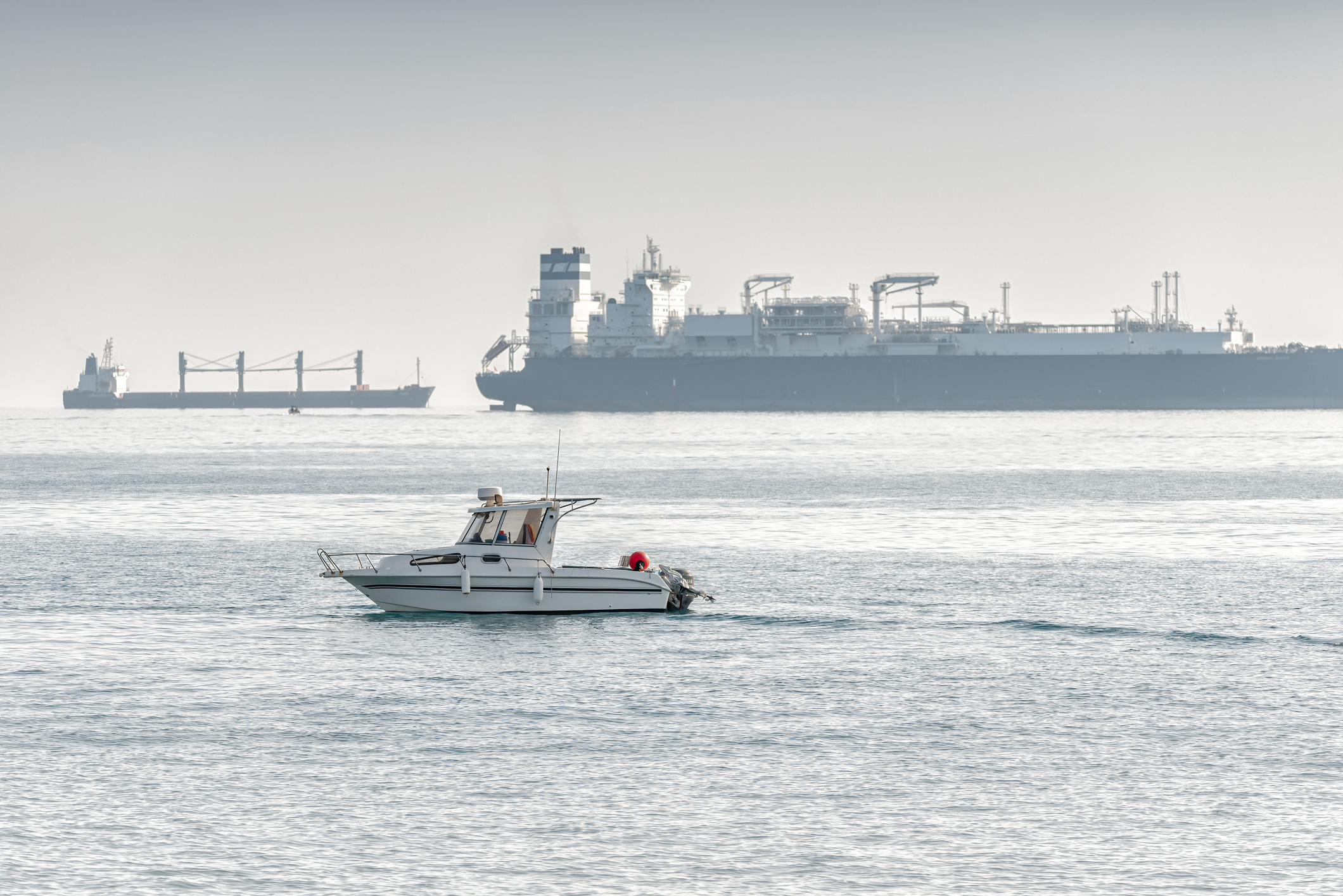“Criminal networks are exploiting every gap between jurisdictions and every weakness in our cooperation,” warns the head of the International Criminal Police Organization (INTERPOL), who reported that traditional maritime threats, like piracy and armed robbery, are surging in some regions.
From the Gulf of Guinea and Singapore Straits to the Red Sea and Somali coast, these threats continue to endanger lives and disrupt critical maritime corridors, with far-reaching consequences for regional stability and global supply chains, warned Valdecy Urquiza, secretary general of INTERPOL during a high-level open debate on evolving maritime threats held by the United Nations’ Security Council on August 11.
Moreover, a growing crime-terror nexus at sea is emerging, as groups exploit criminal supply chains to move weapons, operatives and illicit goods to finance their activities.
Briefing the Council, Valdecy Urquiza urged member countries and the Security Council to view INTERPOL as a trusted partner and to leverage its tools to enhance cooperation, front-line capacity and resilience.
In the ensuing debate, member states echoed their concerns about the wide-ranging maritime threats and urged coordinated global action.
Denmark’s delegate voiced concern about attacks on undersea infrastructure and false flag registries, and particularly about “shadow fleets” that evade sanctions in the Baltic Sea where old, poorly maintained and underinsured vessels threaten safety, trade and the environment. “An international solution is needed to improve vessel tracking, registry integrity and industry cooperation to close regulatory loopholes,” she underscored.
Ukraine’s representative, meanwhile, spotlighted threats to maritime security in the Black Sea and the Sea of Azov. He urged the international community to support sanctions against individuals, entities and vessels engaged in illegal maritime activities, “including the transport of pillaged Ukrainian grain by Russia and the Russian so-called shadow fleet.” Further, it should support holding the Russian Federation accountable for attacks on civilian shipping and port infrastructure, “as well as for environmental damage caused in Ukrainian waters,” he stressed.
The speaker for the United States welcomed Panama’s increased vigilance in responding to malicious maritime cyberactivities, noting that the Panama Canal was “built at great cost by the United States”.
José Raúl Mulino, president of Panama, council president for August, spoke in his national capacity and emphasized that “good maritime governance – as practiced by Panama – ensures vessel traceability, facilitates maritime surveillance and control and actively contributes to the prevention of international crime.” He warned, however, that the same maritime routes transporting 80 per cent of global trade are also used for illicit trafficking of drugs, weapons, migrants and counterfeit goods, and “remain very porous due to limited surveillance capacity and a lack of efficient cooperation between countries.”
The representative of the Philippines highlighted her country’s front-line role in addressing maritime threats. “We close criminal corridors, fight piracy, build capacities, share intelligence and counter terrorist travel,” she said. Citing security concerns in the West Philippine Sea and in the South China Sea, she said that her country will continue to “pursue effective diplomacy, leverage alliances, partnerships and multilateralism and build up domestic capabilities in securing our maritime domain.”
Somalia’s representative said coastal States, particularly in Africa, require sustained support to strengthen law enforcement, surveillance and judicial processes.
The Republic of Korea’s representative drew attention to ongoing threats in key waterways, emphasizing that his country’s joint exercises with the navy, relevant authorities and shipping companies could serve as a “good practice” for coordinated, rapid maritime threat responses.
China said affected countries must be supported in building capacity to safeguard “our blue home”, while respecting the sovereignty of coastal States and addressing the root causes of instability through poverty reduction and sustainable development. He added: “Historical disputes over maritime territory and rights should be resolved through friendly consultation between the directly concerned parties.”
Meanwhile, the International Maritime Organization’s secretary-general Arsenio Dominguez has addressed the United Nations Security Council, emphasizing the need for heightened vigilance and deeper cooperation among member states and international partners to combat escalating threats to global maritime security.
Nearly 150 piracy and armed robbery incidents were reported to IMO in 2024, with the highest numbers in the Straits of Malacca and Singapore, the Indian Ocean, and West Africa. That same year, unlawful attacks in the Red Sea targeted ships in violation of international law and freedom of navigation.
Cyber-attacks, drug trafficking, and fraudulent activities continue to undermine maritime security, while emerging technologies bring both opportunities and risks, highlighting the urgency of strong cybersecurity governance.
Speaking at the United Nations Security Council high-level open debate, chaired by the president of Panama H.E. José Raúl Mulino, Dominguez outlined the risks facing ships and seafarers as they transport billions of tonnes of goods worldwide.
“Our collective response must be rooted in prevention, constant vigilance, innovation, and continuously strengthened regional and international cooperation,” he said. “Multilateralism is key here. Maritime security is a shared responsibility.”
He stressed the need for States to uphold obligations under established international standards for safety, security, and environmental protection in shipping.
“When geopolitical tensions disrupt shipping and innocent seafarers lose their lives, as we have seen recently in the Red Sea Area and during 2024, the only way forward is constructive dialogue,” said Dominguez. “Maritime security is not just technical – it is deeply human.”
Dominguez also thanked the Security Council for resolutions calling for an immediate end to attacks on international shipping and for continued monitoring of the situation.
The secretary-general noted that the IMO has developed several binding measures to mitigate these issues such as the 2004 International Ship and Port Facility Security Code (ISPS Code), the 2005 revised protocols for the Suppression of Unlawful Acts at Sea or SUA treaties, and cybersecurity requirements within mandatory Safety Management Systems.
He also highlighted capacity development projects that strengthen regional responses, with an emphasis on information sharing and cooperation.
Notable frameworks cited by Dominguez include the Regional Cooperation Agreement on Combating Piracy and Armed Robbery against Ships in Asia (ReCAAP), the Djibouti Code of Conduct and its Jeddah Amendment (DCOC/JA), and the Yaoundé Code of Conduct (YCOC) among West and Central African nations.
Dominguez also referenced partnerships with the United Nations Office on Drugs and Crime (UNODC), INTERPOL, regional bodies, and donor member states, mentioning initiatives such as the EU-funded Red Sea Programme and Port Security Project.



